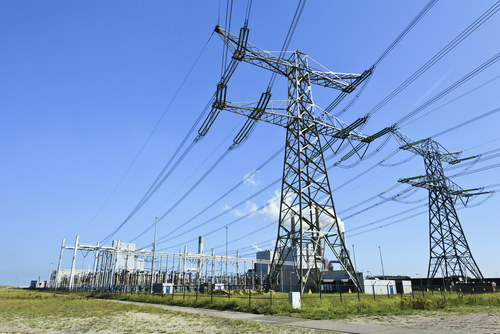

Google is expanding its North Carolina data centre, and heading off protest at the emissions caused by its electricity use by setting up a renewable energy tariff with its utility company.
As part of a $600 million (£394m) expansion of the data centre, Google is making a new agreement with its electricity provider, Duke Energy, to pay extra for its power through a tariff which channels the money to specific renewable energy projects run by Duke. Google argues in a white paper that this approach will often be more effective than moves to generate renewable power onsite, or use renewable energy certificates or other green tariffs.
Data centres have been criticised by environmental activists, such as Greenpeace, for using “dirty” (fossil fuel generated) electricity.
Google has backed green energy, investing $1 billion in wind and solar energy development itself, but has recently shifted to buying renewable energy from providers, purchasing 3260MW of wind energy from the likes of Grand River Dam Authority in Oklahoma, in a bid to encourage utilities to move to renewable sources.
Duke Energy in North Carolina has come in for particular criticism from Greenpeace, and Apple has moved its North Carolina data centre onto its own renewable energy, using a large solar farm.
Google argues its approach of negotiating with Duke is more productive, and has rejected traditional renewable energy tariffs and saleable “renewable energy certificates” (RECs), neither of which are tied to specific renewable energy projects.
“Our efforts must result in “additional” renewable power generation,” says Google’s white paper. “We’re not interested in reshuffling the output of existing projects, and where possible, we want to undertake efforts near our data centres and operations.”
Duke Energy will file a new plan for renewable energy in the next three months, in response to Google’s offer, according to a blog post by Gary Demasi, Google’s director of global infrastructure.
The new tariff is better than on-site generation, because it is scalable for organisations which aren’t as big as Google, and allows the new generation capacity to be put where it will work best, Google’s White Paper says.
It is also less hassle than the power purchase agreements (PPAs) which Google has used for 200MW of power. These are contracts with providers, for specific energy production, but they require Google to get involved in how utilities manage their energy production: “This puts Google in the business of managing power scheduling and contracting, when we’d rather spend our resources building products for our users,” the White paper reads.
The green energy tariff is a compromise between getting too involved in energy management, and getting no specific assurances from energy providers.
The move is in line with what environmental campaigner Greenpeace has been asking from cloud operators, and was welcomed by the campaigner. “Google’s announcement shows what forward-thinking companies can accomplish when they are serious about powering their operations with clean energy,” Greenpeace International IT analyst Gary Cook told Data Center Knowledge .
“Before today, even large energy users in North Carolina were only offered dirty energy by Duke Energy: coal, nuclear and gas. In living up to its commitment of powering 100 percent of its operations with renewable energy, Google has given Duke Energy the push it needed to offer a Renewable Tariff which could finally mean access to clean energy for Duke Energy’s customers in North Carolina.”
Are you running on green energy? Try our Green IT quiz!
Nine EU countries led by the Netherlands push European Commission for follow-up to 2023 EU…
Former Cruise chief executive Kyle Vogt reportedly raises $150m for The Bot Company at $2bn…
Gotbit founder Aleksei Andriunin pleads guilty to manipulating tokens' trading volume and price after extradition…
ByteDance's largest US investors reportedly in talks for majority stake in US TikTok spin-off, with…
Apple reportedly reassigns Siri development to executive behind Vision Pro after acknowledging delays to much-hyped…
TikTok parent ByteDance, a major AI player in China, releases open technique for training LLMs…